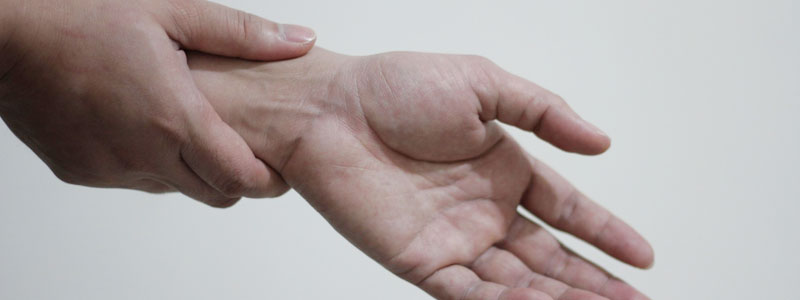Can I File a Personal Injury Claim for a Soft Tissue Injury?
The forces involved in any car accident, from minor fender benders to serious wrecks, can cause both visible and invisible injuries. Sudden starts and stops, unexpected sideways movement, and the massive transfer of energy from a collision often overwhelms sensitive joints, bones, and muscles, leading to an injury. This all probably sounds pretty obvious to […]

February 2, 2018

The forces involved in any car accident, from minor fender benders to serious wrecks, can cause both visible and invisible injuries. Sudden starts and stops, unexpected sideways movement, and the massive transfer of energy from a collision often overwhelms sensitive joints, bones, and muscles, leading to an injury.
This all probably sounds pretty obvious to you. But did you know that the legal system separates injuries into two types? They call skeletal injuries (broken and fractured bones) “hard tissue” injuries, and everything else “soft tissue” injuries.
If you’ve been hurt in an Indiana car accident and diagnosed with one of these soft tissue injuries, you may be able to seek compensation for that treatment through a personal injury claim.
Types of Soft Tissue Injuries

Though it may sound as if soft tissue injuries are no big deal, they can be long-lasting and expensive injuries to treat. Depending on the type of injury and lifestyle you lead, they can also have a debilitating impact on your work and personal life.
Soft tissue injuries generally involve feeling sore or experiencing lingering aches or pain after a car accident. If you haven’t already, see a doctor right away.
Whiplash

A common type of soft tissue injury caused by a car accident is whiplash. This is an everyday term for soft tissue damage in the neck and shoulder region.
Though doctors define whiplash in several ways, most definitions involve straining neck muscles. A strain is caused by overextending or otherwise injuring a muscle. This injury is characterized by neck and upper back pain, prolonged headaches, and dizziness. These symptoms can be more or less severe, depending on how bad the injury is.
Some victims will start to feel whiplash symptoms immediately after the accident, but sometimes stiffness and soreness don’t appear for a few days.
Sprains and Strains

The difference between sprains and strains is what part of the body the injury affects. Sprains are damaged ligaments, which connect bones to other bones. Strains affect muscles, which can connect to bones or other soft tissue.
In some car accidents, other parts of the body besides the neck experience sudden and unnatural motion, which can cause sprains and strains nearly anywhere, though they are commonly found in the back and arms.
Symptoms of sprains and strains are similar to whiplash, because they are the same injury. Like with symptoms of whiplash, stiffness, muscle fatigue, and even bruises from other injuries may not appear until a few days after the accident.
Spinal Disc Injuries

Though less commonly resulting from car accidents, disc injuries are some of the most painful soft tissue injuries.
In between the vertebrae of your spinal cord are fluid-filled cushions called discs. They allow your back to flex and stretch when they’re in the right place, but the shock of a car accident can cause them to shift or even rupture.
Two spinal disc injuries are bulging discs and herniated discs. Bulging discs have slipped out of place and press on the sensitive nerves running along and inside your spinal cord. Though this injury is very painful, a herniated disc can be even more painful. This is when a disc has burst, and no cushion remains between two vertebrae, so the bone rubs against the other bone, pinching nerves in the process.
If you have spinal injuries after a car accident, you will almost definitely feel it. In this scenario, you should get to a doctor right away and once you’ve recovered, seek compensation for your medical bills.
Help from an Indiana Car Accident Attorney
Just because your injuries may be considered “soft” doesn’t mean they aren’t worth filing a personal injury claim over. Sometimes soft tissue injuries can lead to slow treatment plans with a long timeline of recovery. While your body is doing the hard work of healing, the last thing on your mind should be how you’re going to pay your bills.
The experienced car accident attorneys at Hensley Legal Group can take the hassle of filing a personal injury claim off your shoulders. We know how to talk to insurance adjustors and build a strong case to help you get the compensation you deserve. Contact us online today for a free consultation of your case.